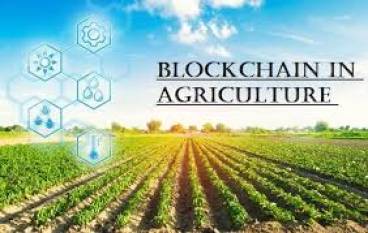MUMBAI, 28 April 2025: India's agricultural economy faces critical issues such as food wastage, market inefficiencies, and a lack of trust across the supply chain.
As the nation seeks to modernize, blockchain technology offers a solution that could transform the agri-tech industry by enhancing transparency, traceability, and efficiency.
The Problem with the Current Supply Chain
India's food supply chain is long and fragmented, with multiple intermediaries including traders, carriers, and retailers, leading to delayed payments, poor cold storage, and lack of real-time information. The biggest issue, however, is traceability. When food products are contaminated or of poor quality, tracing the source is complex and time-consuming. Farmers often remain unaware of the final price their produce fetches, feeling powerless in the market.
What is Blockchain and Why Does it Matter?
Blockchain is a secure, decentralized digital ledger that records transactions in a tamper-evident manner. Unlike traditional databases, blockchain doesn’t rely on a central authority. Each transaction is timestamped and distributed across the network, making it nearly impossible to alter the data once entered. In agri-tech, blockchain can offer a way to track the journey of food from farm to table, ensuring transparency and trust across the entire supply chain.
Revolutionizing Agriculture through Blockchain
-
Enhanced Traceability: Blockchain allows tracking every step of a crop’s lifecycle—from planting to harvesting, storage, and sale. This ensures that if a food safety issue arises, the contaminated batch can be traced back to its origin quickly, preventing health risks and damage to reputation.
-
Removing Middlemen and Providing Fair Pricing: Blockchain facilitates direct transactions between farmers and buyers using smart contracts. These self-executing contracts eliminate intermediaries, enabling farmers to receive better prices and timely payments for their produce.
-
Food Waste Reduction: Real-time tracking of perishable goods helps identify delays or inefficiencies in the supply chain. If a shipment is delayed or storage is mishandled, the issue can be quickly rectified, reducing food waste.
-
Transparency and Trust: Blockchain’s immutable records build trust among stakeholders, including farmers, distributors, retailers, and consumers. This can increase confidence in the market, potentially opening up international export markets where quality assurance is crucial.
The Road Ahead: Opportunities and Challenges
Despite the clear benefits of blockchain in agriculture, widespread adoption in India faces several challenges. Effective implementation requires coordination between policymakers, agri-tech startups, cooperatives, and technology experts. However, the Indian government’s push for digital agriculture, along with pilot programs in Andhra Pradesh and Maharashtra, demonstrates the country’s growing commitment to modernizing agriculture. These initiatives have already shown positive results, such as improved seed distribution transparency and better monitoring of crop insurance claims.
Conclusion: A Future Worth Sowing
Blockchain has immense potential to reshape India’s rural economy. Beyond just technology, it promises improved food safety, farmer empowerment, and a safer food system. By embracing blockchain, India can lay the groundwork for a smarter, more transparent agri-tech industry that benefits all stakeholders.
By Jagdish Kumar
Image credit: globalbizoutlook.com




















